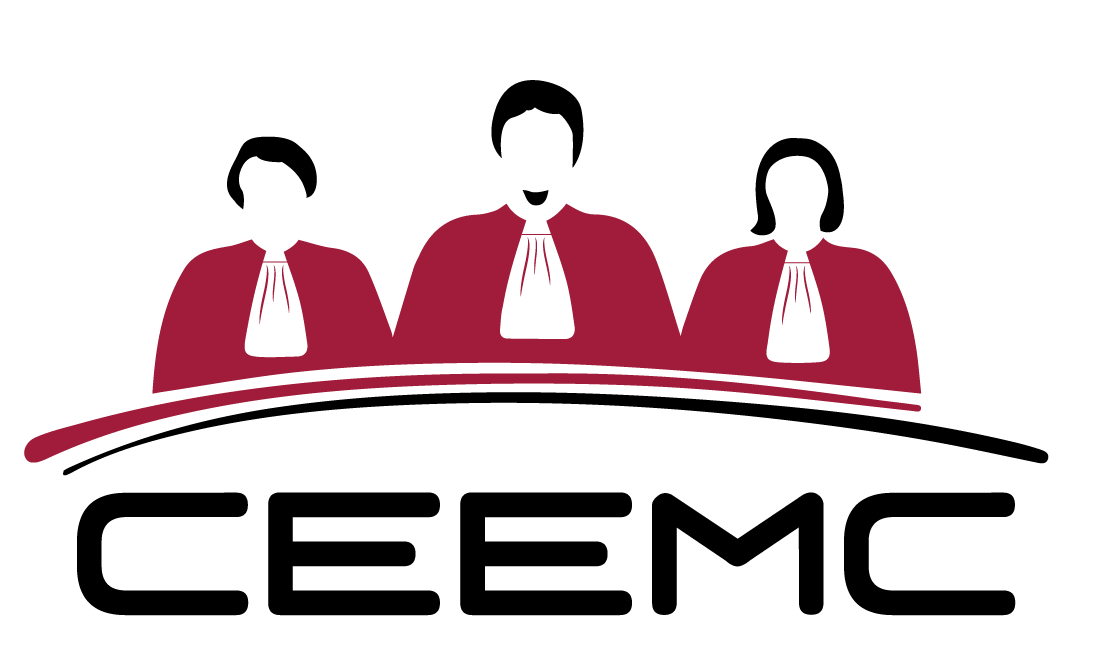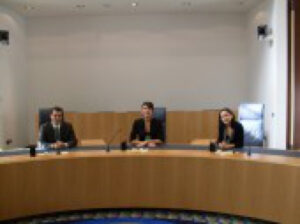Surreal is precisely how I would describe a recent visit to Cambridge University, and the sequence of events that took me there, along with two fellow law students, Lena Sammut and Andrew Sciberras.
So, let’s start from the very beginning. Last March, I had a little bit of time on my hands. Instead of doing what any fourth year law student in their right mind would do (i.e. lock myself up in an Isolation Chamber with the Maltese Civil Code and a lifetime supply of highlighters), I decided to coax two classmates into participating in the Central and Eastern European Mooting Competition. For the uninitiated, ‘mooting’ is a British academic tradition that involves simulating a court case in front of a panel of notoriously razor-sharp judges. Not to put too fine a point on it, it’s not for the faint-hearted. This was the first time my University, the only University on the small island of Malta, had ever participated in this competition, and much to everyone’s surprise (not least of all, our own) we won the International Finals in Sofia last May. When this news had finally sunken in, we were told our prize would be a week-long study visit at Cambridge University’s Faculty of Laws.
Four months later, we were still pinching ourselves in disbelief as we milled through Freshers’ Week at the university that had only recently ousted Harvard from its coveted top spot in this year’s QS International University Rankings. This was something we were unintentionally reminded of every day of our stay. Whether it was a tourist guide telling us that the net worth of just 1 of the 31 colleges at the University runs into billions of pounds, or the discovery that 61 of Cambridge’s graduates are Nobel Prize winners, or simply basking in the ubiquitous architectural splendour spanning nine centuries, we never could shake off the idea that merely being there for a week was a privilege.
Our first stop was the Squire Law library, ensconced in the Faculty of Laws – and what a library it is. My inner geek squealed gleefully at the prospect of three floors packed to the brim with books, journals, law reviews, antique books and statutes from far-flung countries. And this was even before I had set sight on the building itself, a metal-and-glass ode to minimalism designed by the world-famous architect Norman Foster.
We soon found out that the Cantabrigian version of Freshers’ Week was a vibrant affair, with student organisations setting up camp over acres of green fields. Trotskyists, feminists, Evangelical Christians, LGBT campaigners, anti-war lobbyists and military aficionados set aside their differences in a collective effort to reel in starry-eyed Freshers with their wares.
Ever the keen tourists, we could not resist a Freshers’ Week rite of passage: punting down the River Cam. Punting is a bit like canoeing, only the boats (called ‘punts’) are especially lightweight and are propelled by pushing a seven-foot pole against the river bed. After watching two boatfuls of Freshers capsize haplessly, we decided to take the lazy (read: ‘not soaking wet’) option: hiring a qualified punter. This turned out to be a brilliant idea, as he doubled as a tour guide, peppering his spiel with anecdotes, the most audacious of which it would be unwise to repeat in print.
Half-way through our stay in Cambridge we caught the train to London where we were taken on a guided tour of both the Supreme Court of Justice and the Royal Courts of Justice. Forgive me for waxing lyrical about libraries once again, but the Supreme Court library is a gem. Upon being appointed to the Bench, each Supreme Court Justice must choose a quote that best sums up his thoughts on Justice. This is then engraved on the library walls. My favourite was an aphorism by Martin Luther King: ‘Injustice anywhere is a threat to Justice everywhere. We are caught in an inescapable network of mutuality, tied in a single garment of destiny. Whatever affects one directly affects all indirectly.’
Before lunch, we had a tete-a-tete with Lady Hale, the first, and to date the only, female Supreme Court Justice. Lady Hale is renowned for both her pioneering work in children’s rights as well as her unbridled feminism. In person, she was a sparkling conversationalist who gamely bestowed professional advice that we readily lapped up. Shortly after, this time at the Royal Courts of Justice, we had the pleasure of meeting Lord Justice Jacob, a leading figure in Intellectual Property Law, whose wry wit and sheer love for legal education had us in thrall.
On Thursday night, we made our way to the famed halls of the Cambridge Union, whose past Presidents and Officers include the economist John Maynard Keynes, Huffington Post founding editor Arianna Huffington and former Tory Leader Michael Howard. At the Union, we witnessed a heated debate on the proposition: ‘This House would abolish all public schools’. A Communist and a public school headmaster went head to head in a bid to win the hearts and minds of their audience. At the end of the debate, we were told to cast our vote by exiting through one of three doors: the left door meant ‘Nay’, the right door meant ‘Yay’, and the middle door was for those poor souls still oscillating undecidedly between the two options. And after a debate like this one, who could blame them?
It would be an understatement to say that lectures at the Law Faculty were a sheer pleasure to attend. We couldn’t help but notice how meticulously prepared each lecture was. One lecturer was evidently on first name basis with the leading legal thinkers on the syllabus, while another was someone whose textbooks I have cited in assignments and exams.
On Friday night, we attended an inaugural dinner with the new graduate students enrolling at Magdalene College, which houses the only dining hall in Cambridge still not supplied with electricity. This has given rise to a quaint tradition: candlelit dinner in pitch darkness, which we enjoyed in the company of Professor William Cornish, a luminary in the field of Intellectual Property Law. We could not have asked for more congenial company, as he regaled us with his insider’s view of Magdalene’s illustrious history.
Seven days flew by all too quickly and soon it was time to bid Cambridge farewell. When our taxi arrived on the last day, our eyes lingered in a futile attempt to immortalise one final memory of the University we had quickly grown to love. As our plane grazed upon Maltese soil, we were jolted back to reality with a gentle thud.
The winning team from the University of Malta would like to thank the organising coordinator of the CEEMC Mooting Competition Ms Denise Ashmore as well as Professor William Cornish and his secretary Ann Smith for this unforgettable opportunity.

